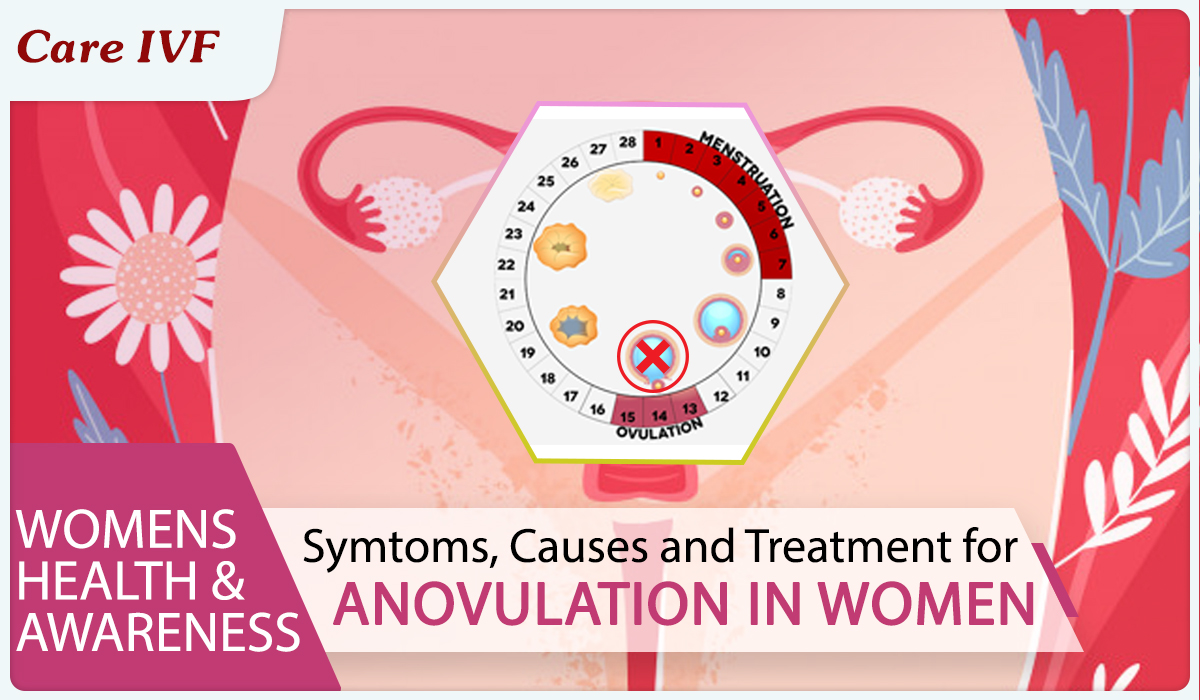

What are the causes for anovulation in women?
Anovulation is the failure of the ovary to release an ova over a period of time generally exceeding 3 months. The normal functioning ovary releases one ovum every 25-28 days. This average time between ovulation events is variable, especially during puberty and the perimenopause period. For non-pregnant women aged 16-40 anovulation is considered abnormal and a cause of infertility in 30% of fertility patients.
One of the cardinal signs of anovulation is irregular or absent menstrual periods. Because menstruation is linked to ovulation, this predictable pattern of ovulation and menstruation is regulated by a cyclic change in hormones. Consequently, the diagnosis of ovulation dysfunction includes the assessment of the hormones and systems involved in ovulation and not just the symptom of amenorrhea.
Anovulation can result from disruption of this series of events anywhere along the pathway. Several external factors such as stress and nutrition also cause anovulation by affecting the hypothalamus and the central nervous system.
Causes of Anovulation:
A systems approach breaks down the causes of anovulation into four categories:
- Hypothalamic and brain
- Pituitary
- Ovarian
- Systemic
Stress induced Anovulation
Stress has been defined as a state of threatened homeostasis. When stress is significant reproductive function decreases in an effort to maintain homeostasis.
Functional Hypothalamic Amenorrhea
Functional hypothalamic amenorrhea is defined as cessation of menses and ovulation without an identifiable organic cause. Examples of organic causes of anovulation include clinical eating disorders and significant weight.
One hypothesis for FHA s a synergistic metabolic and psychosocial dysfunction similar to a state of chronic stress.FHA patients have been reported to have a higher likelihood of mood disorders, increased amount of exercise, mild weight loss and diets with lower fat content, increased fiber and increased carbohydrates.
Personality traits include perfectionism, low self esteem and poor stress management ability.
Psychogenic trauma and stress
Studies have shown the impact of external factors in the environment on menstruation and consequently ovulation.
Anorexia Nervosa
Anorexia nervosa is an eating disorder stemming from a disordered body image resulting in malnutrition and severe weight loss.
The diagnostic criteria includes amenorrhea implying a functional abnormality of the HPO axis.
Bulimia Nervosa
Bulimia nervosa is another eating disorder associated with anovulation. Bulimia nervosa is defined as binge eating disorder with subsequent compensatory behavior (purging) and a poor body image.
Polycystic Ovarian Syndrome
73% of anovulatory women will have polycystic ovaries.
The cause of anovulation in PCOS involves dysfunction of the normal cyclic nature of the menstrual cycle and can arise by several mechanisms. Abnormal Antral Follicle Development and function is a fundamental feature. The cystic appearance of the ovaries results from several follicles failing to mature properly without development of dominant follicle. The multiple follicles produce large amounts of estradiol, which inhibits FSH release thereby preventing further follicular development.
Hyperprolactinemia
The clinical picture hyperprolactinemia mimics the puerperal period, characterized by irregular menses or amenorrhea, galactorrhea, anovulation infertility and decreased libido.
Stay empowered on your journey to parenthood
Anovulation is a common cause of infertility, but with the right treatment it can be successfully overcome.
Improved nutrition, exercise and stress relief can also aid your pregnancy efforts.
If you’re ready to take the plunge into parenthood talk to a fertility specialist to help you find the right treatment to restore your ovulation and improve your chances of conceiving.
Article Tags
About the author

Leave a Comment